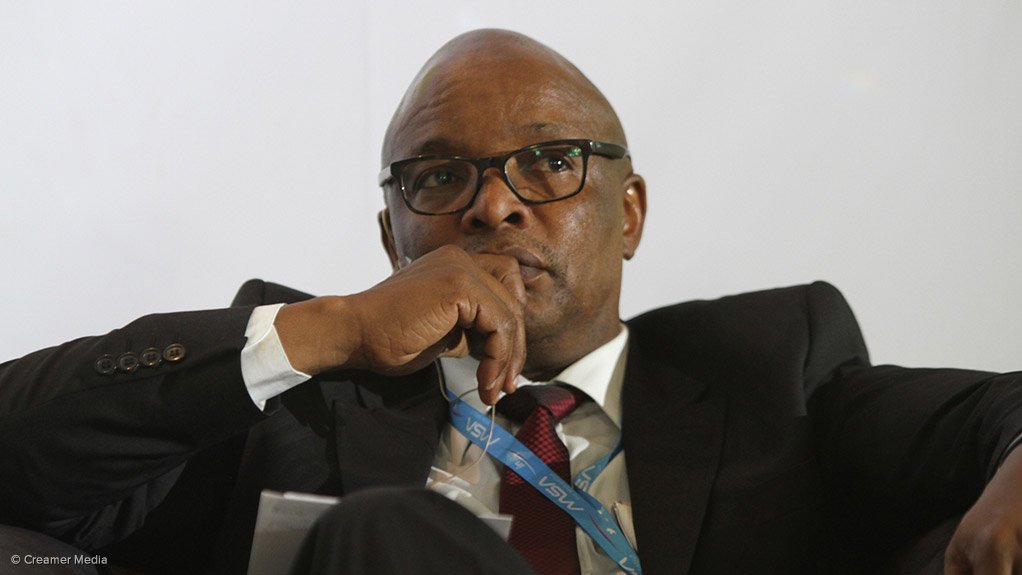JOHANNESBURG (miningweekly.com) – The South African mining industry’s delicate make-or-break phase has been outlined by some of the sector’s leading lights who make it clear that only give-and-gain will prevent it from losing colossal value.
What will break it, they make clear, is failure to achieve stakeholder convergence, despite the $2.5-trillion worth of metals and minerals South Africa still has in the ground – more than any other country on earth. (Also watch Creamer Media video attached).
While several speakers at last week’s Joburg Indaba provided scripts for a positive outcome in keeping with South Africa’s track record of invariably pulling itself back from the brink, it behoved others to sketch the monumental losses that would accrue should a solution not be found.
One of the most vociferous of those was Credit Suisse South Africa chairperson Rick Menell, a former president of the Chamber of Mines of South Africa, who outlined the value loss that failure will bring.
“If we cannot converge and find a win-win - something given and gained by labour, shareholders, communities and government on behalf of the nation as a whole - the asset value of our mining industry will decline to the point where companies worth billions of dollars will be worth only hundreds of millions of dollars and jobs will be threatened on an increasingly large scale,” Menell said during his chairing of a panel discussion in which Gold Fields chairperson Cheryl Carolus, AngloGold Ashanti chairperson Sipho Pityana, De Beers Consolidated Mines executive chairperson Barend Petersen and University of Pretoria vice-chancellor Professor Cheryl de la Rey took part.
"We need to seriously look at a compact between labour and the enterprises to define a framework of shared value, in tough times to take the pain and in good times to share the spoils," said Pityana, who condemned as outmoded the current practice of having rounds of wage negotiations every couple of years.
Menell cautioned that the current intrusion by government in the name of job protection could worsen towards more serious capital misallocation, as had taken place in Zambia with nationalisation, when cash flow from mining was no longer redeployed into copper mining itself but used rather to build Lusaka, educate people on a large scale and to subsidise sectors of the general economy.
The result was an 80% drop in copper production and the virtual death of the industry in Zambia by the mid-Nineties.
While Zambia's re-privatised mining industry is today back up to 750 000 t of copper a year, it took the country 20 years to get back and “we don’t want to go anywhere near that”, added Menell, who believed it instructive for downside possibilities to be part of the conversation on potential positive upside scenarios.
“If we lose this, we’re really going to set ourselves back way beyond where we were 20 years ago,” warned Carolus, who urged South Africans to come up with bold initiatives to restore the stability of all stakeholding entities.
The upcoming Presidency-led Operation Phakisa Mining Laboratory must to be successful, said Pityana, who drew attention to the need for South Africa to create an enabling environment that made mining investment attractive to international capital, as domestic capital would always be limited.
“For me, Phakisa represents another opportunity to reset the dialogue,” said Petersen.
At the same time, steps should be taken to ensure that the nature and the character of the industry was transformed.
“Being in a multinational company and looking and seeing how mining works in other jurisdictions leaves one with the feeling that we could do better,” Pityana added.
Carolus drew attention to the need for mining to be seen in the wider context of its contribution to the South African economy as a whole in the area of shared value, which was the only way forward.
She said that mining needed to reclaim its power and unshackle itself from the slavery of expecting government involvement.
“We need to look at what we can do and in that way perhaps the government will take use more seriously,” the former Ambassador to London added.
Boards of directors and executives had onerous responsibilities and could end up in jail for governance breaches.
Processes presenting opportunities for industry solutions included the upcoming Phakisa mining laboratory, as well as the Davis Commission on Tax at macro level and the introduction of a management style at mine level that was measured and rewarded for shaping the workforce.
“My appeal is that we start on the journey. We do not want the unions to be the only way in which we speak to our own workforce,” Carolus added.
Petersen urged mining leaders to accept that they were the current custodians of the future of the mining industry.
“We need to find that elusive mechanism…. We need to refresh the dialogue, which is why Phakisa is important,” he said, adding that the country might also need to take short-term medicine to allow the country to move forward. (Also watch Creamer Media video attached).
Menell pointed out how the South African mining industry had become completely out of date quickly after operating in a very slow changing environment for 100 years.
“We’re only going to come out with a modern industry appropriate for our time with collaboration, which has become very strained in recent years,” he commented.
Attempts to build compacts on a grand scale first appeared during the Mineral and Petroleum Resources Development Act process in the Nineties and was followed by the Mining Charter, but political complexities and distrust, particularly in the platinum gold and coal mines, has made it difficult to develop convergence with government regulators, labour and increasingly with communities.
There was a time in the Seventies when by any measure, South Africa represented 50% of the world mining industry by volume and value of production, which last year dropped to 4% of the much-diminished industry.
This, as well as numerous uncertainties, was making capital difficult to attract and the country has not managed to build any greenfield mines despite its enormous minerals endowment.
South Africa’s ability to venture into Africa is also being severely constrained by its domestic difficulties. (Also watch attached Creamer Media video).
EMAIL THIS ARTICLE SAVE THIS ARTICLE
To subscribe email subscriptions@creamermedia.co.za or click here
To advertise email advertising@creamermedia.co.za or click here












